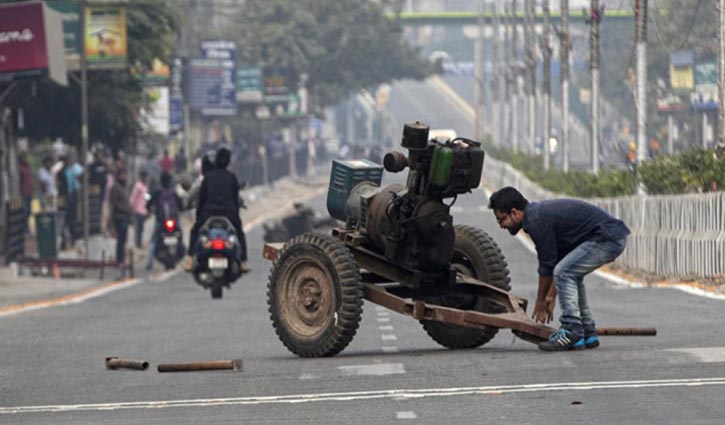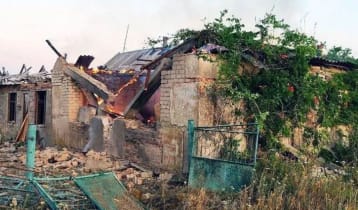Assam people defy curfew, throng streets
8 || risingbd.com

It is Hong Kong in India’s Guwahati. Entire GS Road is literally seized. No leader. No organisation. Ordinary people are pouring out," tweeted a Guwahati-based senior journalist when Rajya Sabha was debating the Citizenship (Amendment) Bill, 2019.
It's not just Guwahati. Most of Assam's Brahmaputra Valley erupted in spontaneous protest against the Bill. Students, activists, writers, actors, musicians and people from all walks of life defied curfew and thronged the streets to voice their angst against the bill, which they believe will pose a serious threat to not only their livelihood and political destiny but also to cultural and linguistic identity.
The new amendment to the Citizenship Act of 1955 aims to provide Indian citizenship to Hindu, Sikh, Buddhist, Jain, Parsi and Christian refugees from Afghanistan, Bangladesh and Pakistan. A person belonging to any of these faiths - who entered India on or before December 31, 2014 and have lived in the country for six years - can apply for Indian citizenship.
Though this provision covers refugees from three nations, the people in the North-East fear that it will primarily benefit the illegal Bengali Hindu migrants from Bangladesh who have settled in "large numbers" across the region.
The bill was first introduced in Lok Sabha in 2016, but the first Narendra Modi government could not get the Bill passed in Rajya Sabha and it lapsed.
Taking note of the protests, the revised version of the amendment has exempted certain areas in the region- Arunachal Pradesh, Nagaland, Mizoram, Manipur, almost the whole of Meghalaya, and parts of Assam and Tripura.
While these exemptions have calmed down other areas of North-East, massive protests are going on in Assam, particularly in the Brahmaputra valley and in Tripura.
Though the BJP has tried to hard sell the bill projecting it as a strategy to protect the Hindu identity of Assam against the influx of Muslims from Bangladesh, it failed to take into account the fear among the Assamese people of cultural hegemony of Hindu Bengalis.
The Assamese have not forgotten how British administration imposed Bangla as the state language between 1826 and 1872 at the insistence of Bangla-speaking government workers from West Bengal. The linguistic data of the Census 2011 has also widened the already existing fault lines between the Assamese and Bengalis.
According to it, the percentage of people speaking Assamese decreased from 58 per cent in 1991 to 48 per cent in 2011, while Bengali speakers in the state went up from 22 per cent to 30 per cent in the same period.
In Assam's Barak Valley, dominated by Bengali Hindus, Assamese is still not accepted as the state language. What have added to this fear are campaigns, such as 'Miyah Poetry' and 'Chalo Paltai'.
A section of educated Muslims of immigrant origin, who are fluent in Assamese but speak a Bangla dialect - locally called Miyah - among themselves, have started writing poetry in that dialect. These poems talk about their pain of living as a suspect in the place where they were born.
And if Miyah poets were not enough to add fire to the already volatile situation, Garga Chatterjee, an Assistant Professor at the Kolkata-based Indian Statistical Institute and TMC sympathiser, has apparently launched a campaign asking all Banglaspeaking people in Assam to write their mother tongue as Bangla in the next Census, so that together, all Bengalis can overthrow Assamese dominance in Assam.
The Assamese fear that if Bengali Hindus and Bengali Muslims join hands, Banglaspeakers will easily outnumber Assamese-speaking people in the state, as it has happened in Tripura where Bengali-Hindu immigrants from East Bengal now dominate political power, pushing the original tribals to the margins.
It is why even the BJP's ally in the state, Indigenous Peoples Front of Tripura, has been protesting against this amendment.
To allay fears of a 'Bengali uprising', Assam chief minister Sarbananda Sonowal has made claims that less than 2,00,000 Hindu immigrants in Assam are eligible to apply for citizenship and nearly 1,50,000 of them are in the three districts of Barak Valley-Cachar, Karimganj and Hailakandi.
Nobody is buying his argument as he was shown black flags by All Assam Students' Union members, the very student organisation he once headed. What may convince the chief minister and BJP leaders to ignore the protests is the fact that BJP increased its tally in Assam in the recent Assembly byelections, winning three of the four seats on offer, despite openly expressing its commitment to the Citizenship (Amendment) Bill.
BJP leaders such as Assam Finance Minister Himanta Biswa Sarma use the results to dismiss the massive street protests as the handiwork of vested interest groups. But Assam has a history of mass movements to protect language, culture and identity. This may be the beginning of another one. _India Today
Dhaka/AKA
risingbd.com



















